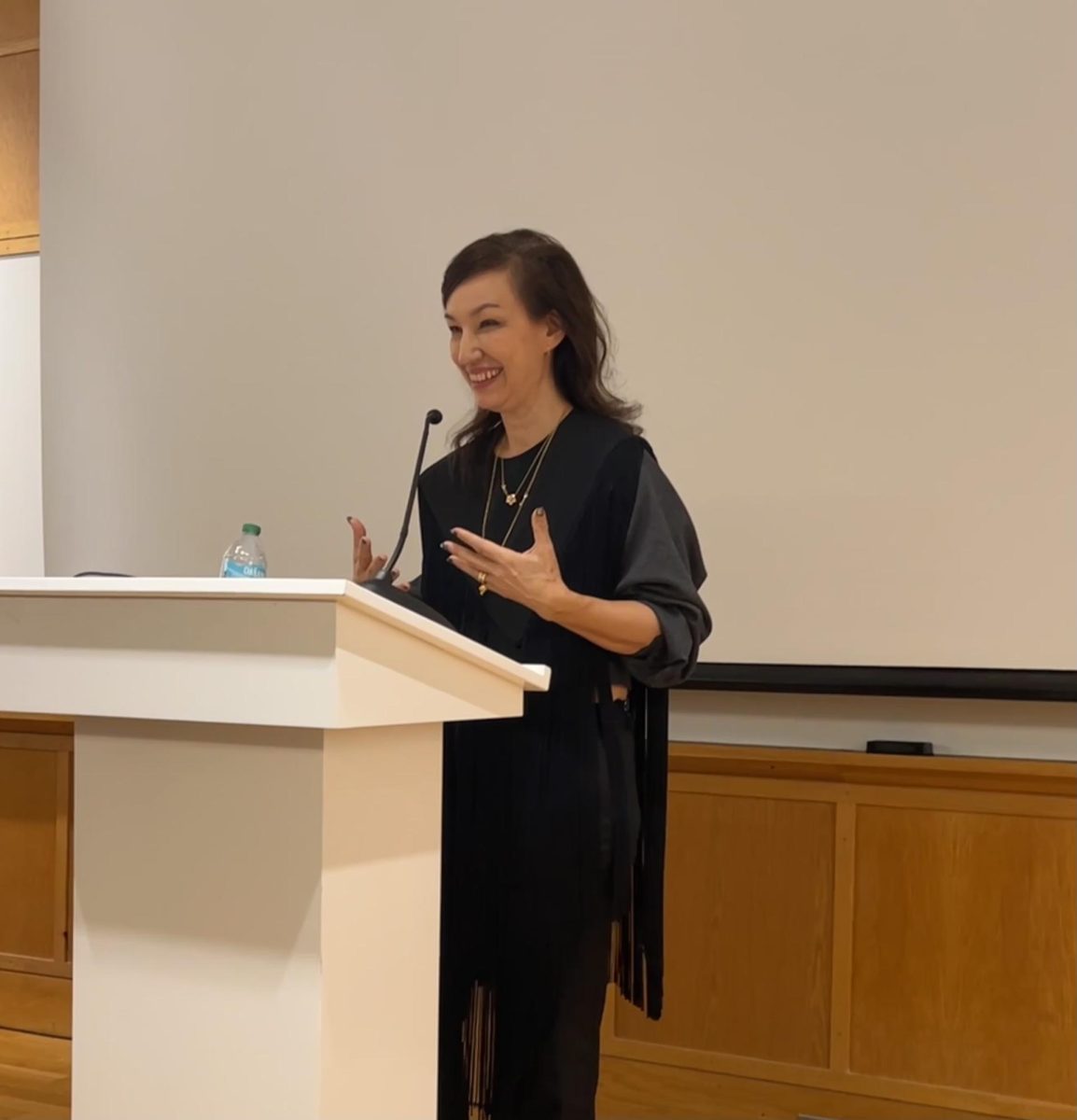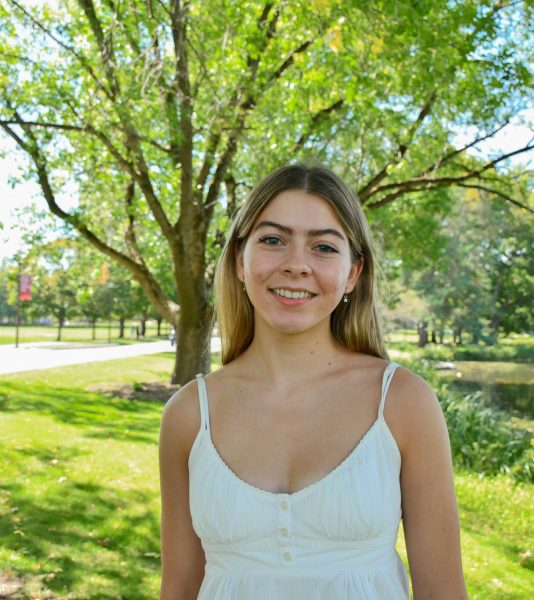“Some of the most powerful experiences we have are because of a person who comes into our lives,” said Marie Mutsuki Mockett, author of “The Tree Doctor.”
Mockett delved into these perspectives and her novel at the Persson Auditorium Oct. 24 as part of Colgate University’s ongoing Living Writers series.
Her book is an amalgamation of many things: the COVID-19 pandemic, the aesthetics of Japanese culture, “The Tale of Genji” and more — all coming together through the exploration of the unnamed narrator’s discovery of herself.
In the novel, the narrator gets stuck in California because of an unnamed sickness after she goes to spend time with her mother, a dementia patient, while her husband and two daughters remain in Hong Kong. During her time alone in her childhood home, the narrator becomes fascinated with reviving her mom’s garden and enlists a tree doctor’s help. She eventually becomes infatuated with the tree doctor and engages in an extramarital affair with him.
Mockett revealed that the process of weaving various elements to the story was very much ongoing. The method of researching for this book was a combination of researching as needed and adding in her own personal experiences until she felt like the book came together as a whole.
“It was like a magic show. Once I had enough tricks to keep the illusion going, the illusion would be complete,” Mockett said.
With “The Tree Doctor,” Mockett looked to write something new altogether.
“I would like to tell a story that others have not read,” Mockett said.
Mockett wrote this novel, in some ways, as a response to “The End of the Affair” by Graham Greene. In the 1951 book, Greene effectively punishes his characters for having an affair; Mockett, on the other hand, chooses to end the novel in an alternate manner. This story is not a story about love, but one about self-discovery. Mockett wrote the relationship between the tree doctor and the narrator considering the Japanese aesthetic of “wabi-sabi,” which is a worldview observing everything as imperfect, incomplete and impermanent.
“Not all stories are love stories,” Mockett said.
Mockett drew inspiration from various sources when starting to write “The Tree Doctor.” During the COVID-19 pandemic, Mockett stumbled upon a tweet making a joke about how hard it would be to have an affair during the pandemic. This, combined with her visit to her local gardening center and witnessing the attention a staff member was getting from all the women, planted a seed in her head for a potential book.
First-year Lottie Allen-Emerson, a student in the Living Writers course, thought that the creation process was especially intriguing.
“The story of her talking about the creation of the book was fascinating, as generally we do not get to hear about how an author comes up with the idea for their book. The fact that [Mockett] was so open about her process in developing ‘The Tree Doctor’ was amazing,” Allen-Emerson said.
Mockett’s interest in explaining her writing process and her sincerity was evident throughout the Living Writers event. Students, including first-year Ada Linde, felt inspired by her authenticity.
“[Mockett’s] presentation was powerful to me because of her presence. She showed a genuine interest in us as students and in attempting to answer our many questions,” Linde said. “I left her lecture feeling inspired and wanting to read more of her work.”
Through “The Tree Doctor,” Mockett pushes forward new ideas, new stories and new definitions of a main character. Through her writing, she writes her perspectives into existence and explores ideas that others do not dare to. Her writing is bold, daring and sometimes cheeky, but challenges the mainstream ideas of family, caretaking and what it means to fundamentally know yourself.

















